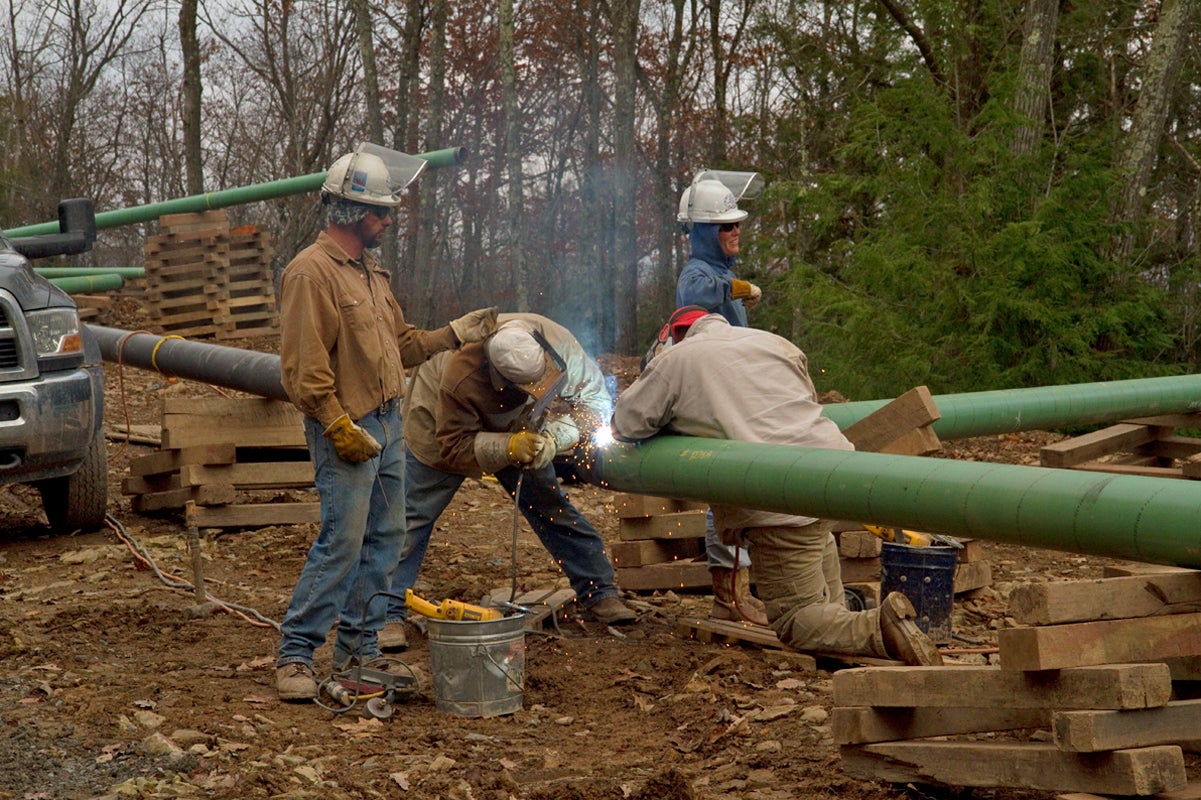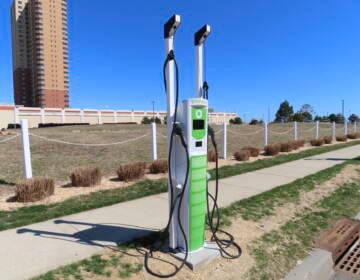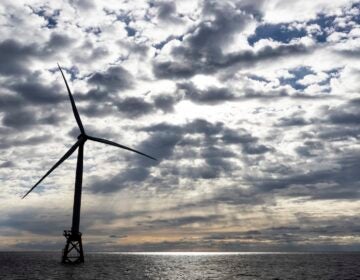N.J. Natural Gas wants to spend big on pipeline, other projects
New Jersey Natural Gas is seeking approval for investments that would increase residential customers’ monthly bills.

Crews are shown welding a pipeline connecting to a natural gas well in northern Pennsylvania. The Mariner East 2 plan would build two natural gas pipelines across southern Pennsylvania. (Lindsay Lazarski/WHYY
This story originally appeared on NJ Spotlight.
—
New Jersey Natural Gas is back before regulators seeking to boost its rates by $128.2 million annually, an increase that could cost its typical residential customer more than $19 a month if approved.
The filing, delivered to the state Board of Public Utilities on Friday, seeks to recover past operational and maintenance investments. As part of the filing, the utility also is seeking $28.6 million for a 30-mile transmission pipeline through parts of the Pinelands in another regulatory proceeding. If approved, it would add $4.58 to a typical residential bill.
For the BPU, the filings are the latest in a surge of requests from the state’s gas and electric utilities to undertake grid and pipeline modernization projects that are taxing customers’ ability to pay their bills. Consumer advocates say the total filings seek $12 billion in rate increases.
In February, New Jersey Natural Gas filed a petition seeking approval to invest $500 million over the next five years to enhance the reliability of its gas system. In its latest filing last week, the utility said an adjustment in rates is necessary to cover costs associated with the operation of its system, including substantial infrastructure investments.
Even with the latest proposed increase, customers’ bills would still be nearly 30 percent lower than bills in 2008 because of a steep decline in wholesale natural gas prices. Utilities in New Jersey do not profit from the sale of gas, earning only a profit on what is delivered to customers.
Opposition to pipeline
“These investments periodically require base rate adjustments, achieved through a rigorous approval process with regulators, to ensure our customers have safe and reliable service when they need it,’’ said Steve Westhoven, president and COO of New Jersey Natural Gas. The utility’s last base rate increase occurred in 2016.
The investments have triggered opposition from residents upset with new pipeline extensions and projects crisscrossing New Jersey. NJNG’s Southern Reliability Line project, a 30-mile pipeline in Ocean County, is still being litigated in court even as the utility is rushing to complete it to bring it into service sometime in 2020.
Environmentalists have called for a moratorium on new pipeline projects and on plans to build up to four new natural gas-fired power plants in the state. They argue the state will never achieve the Murphy administration’s goal of 100 percent clean energy by 2050 if these projects are built.
“NJNG is coming after your wallet and the environment,’’ said Jeff Tittel, director of the New Jersey Sierra Club, who was particularly critical of the Southern Reliability Line. “It is shameful that NJNG wants the ratepayer to pay for this speculative pipeline.’’
Meanwhile, the workload continues to grow for the BPU. Later, this month, the agency is expected to decide whether PSEG Power will be awarded a ratepayer subsidy of up to $300 million a year to keep its trio of nuclear power plants from closing. Then by next June, it will decide which offshore-wind developers win ratepayer subsidies to build wind farms off the Jersey coast, a cost expected to exceed $1 billion or more.
WHYY is your source for fact-based, in-depth journalism and information. As a nonprofit organization, we rely on financial support from readers like you. Please give today.




